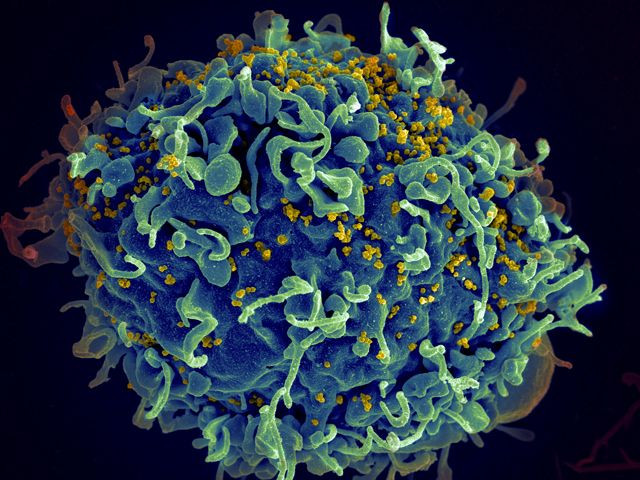NIH Develops New Tool To Search For HIV Antibodies, Could Speed Vaccine Research

Researchers at the U.S. National Institutes of Health (NIH) have developed a mathematical algorithm to find a particular class of HIV antibody in blood samples, according to an NIH press release. Identifying these antibodies, called broad neutralizing antibodies (bNAbs), could eventually lead to a more powerful HIV vaccine.
These bNAbs are present in individuals whose blood shows signs of neutralizing the majority of HIV strains, NIH says. But current methods for blood analysis have required large quantities of blood from donors, and have not shown which bNAbs are present in a given patient or to which parts of the virus they attach.
The new tool, called neutralization fingerprinting, is an algorithm that uses data already collected on the neutralization fingerprint of HIV bNAbs, a measurement of which virus strains a given bNAb can block and to what extent it can block that strain, NIH says. The new algorithm, which the researchers described in a new study in Science, measures the neutralization fingerprints of the mixture of antibodies in a given blood sample, and determines which bNAbs are present and which virus strains are being blocked.
By culling even more information on the most effective bNAbs and learning exactly how they work, researchers believe their work could lead to the development of more effective HIV vaccines, NIH says. This algorithm could also be used to study other viruses like the flu and hepatitis C.
Published by Medicaldaily.com



























